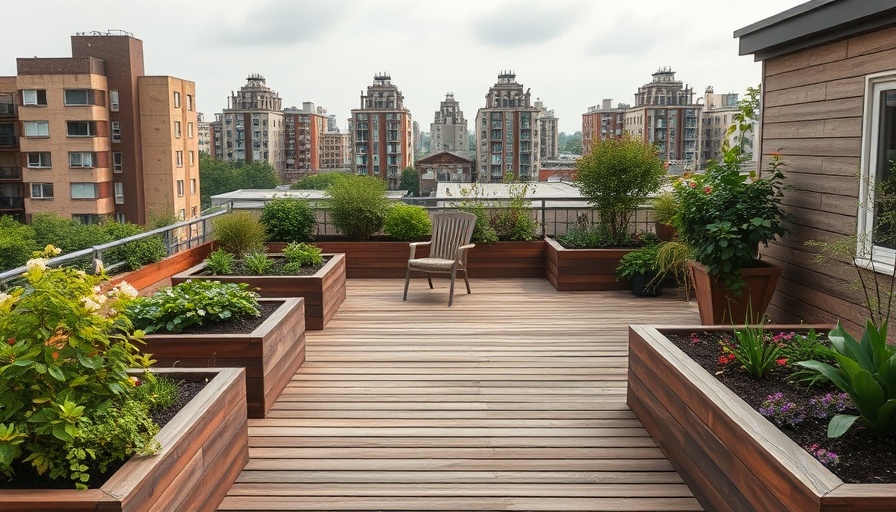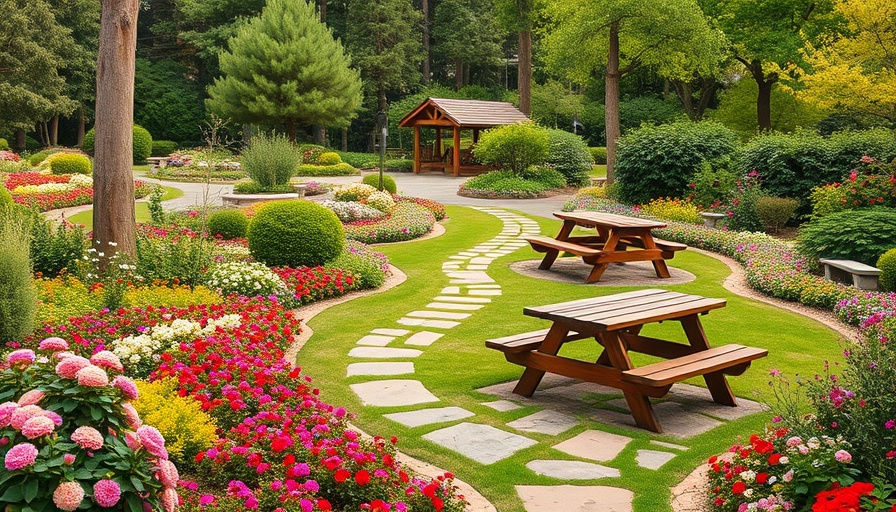
Embracing Garden Accessibility: Why It’s Important
Gardening has long been known to provide both physical exercise and mental clarity, making it an invaluable pastime at any age. Yet, as physical capabilities fluctuate with age or disabilities, many gardening enthusiasts find it challenging to continue enjoying their beloved activity. For individuals living in California, where the climate is conducive to year-round gardening, creating an accessible garden space can make all the difference. Not only can gardening offer a sense of purpose, but it can also serve as a therapeutic outlet, boosting mental well-being and connectedness to nature.
Transforming Space: Using Raised Garden Beds
Adaptability is critical when designing a garden for aging in place. One effective way to facilitate easier gardening experiences is through raised garden beds. These installations remove the need to bend down, making it easier on joints and backs. Raised beds can likewise be constructed in various sizes, accommodating specific needs—from small containers at table height to larger structures designed for wheelchair access.
For many California homeowners, raised beds also offer an aesthetic appeal by defining garden areas and adding depth to the landscape. A well-placed raised bed can serve as a focal point, showcasing vibrant plant life and enhancing the visual aesthetic of a yard.
Creating Compact Spaces for Enjoyment and Ease
As homeowners age, managing extensive yard spaces can become daunting. Instead of sprawling gardens, consider compact designs that deliver satisfaction without overwhelming the gardener. Utilizing vertical gardens or vertical planters allows you to cultivate a variety of plants while minimizing physical strain. These structures capitalize on limited space and can contribute to California's beautiful urban garden landscape.
A well-curated vertical garden can also function as a striking visual centerpiece, inviting outdoor living and enhancing the home's exterior.
Choosing the Right Plants: Low-Maintenance Options
Beyond the physical attributes of a garden, plant selection plays a crucial role in maintaining an accessible garden. Opting for low-maintenance plants can reduce the workload significantly while ensuring a vibrant and lush garden throughout the season. Consider drought-resistant options, which align perfectly with California's climate and can help save water. Plants like succulents, ornamental grasses, and certain perennials offer beautiful color and texture without the need for constant care.
Benefits of Outdoor Gardening: Enhanced Physical and Mental Health
Engaging with nature comes with numerous benefits, especially for the elderly and those with physical challenges. Outdoor gardening has been linked to improved mood, reduced stress levels, and increased physical activity—all factors contributing to a healthier lifestyle. By designing gardens that prioritize accessibility, Californians can ensure continued engagement with nature, combating loneliness and depression that often coincide with aging. Additionally, integrating sensory plants, including fragrant flowers and textured foliage, can heighten the experience and make gardening more enjoyable.
Innovation in Garden Design: The Role of Technology
Incorporating smart technologies into gardening can streamline tasks and enhance overall enjoyment. Automated watering systems, for instance, allow for consistent watering without manual effort—an excellent option for those with mobility issues. Similarly, using smartphone apps to monitor plant health can make caring for a garden less cumbersome.
Implementing eco-friendly methods like composting can not only boost plant health but also foster a sense of achievement via self-sufficient practices. Homeowners can engage in sustainable practices while also contributing positively to the environment.
Conclusion: Taking the First Steps Towards an Inclusive Garden
Implementing these tips can transform gardening from a daunting endeavor into a pleasurable hobby, even in the face of physical limitations. The beauty of gardening lies in its adaptability; with some planning and creativity, age or health issues need not restrict one’s ability to enjoy the beauty of nature.
As Californians continue to innovate and create accessible, beautiful spaces, the message is clear: everyone should have the opportunity to connect with nature and enjoy the fruits of their labor. Whether you're transforming your existing garden or starting anew, take advantage of these accessible strategies to ensure years of fruitful gardening ahead for yourself or your loved ones.
 Add Row
Add Row  Add
Add 




Write A Comment